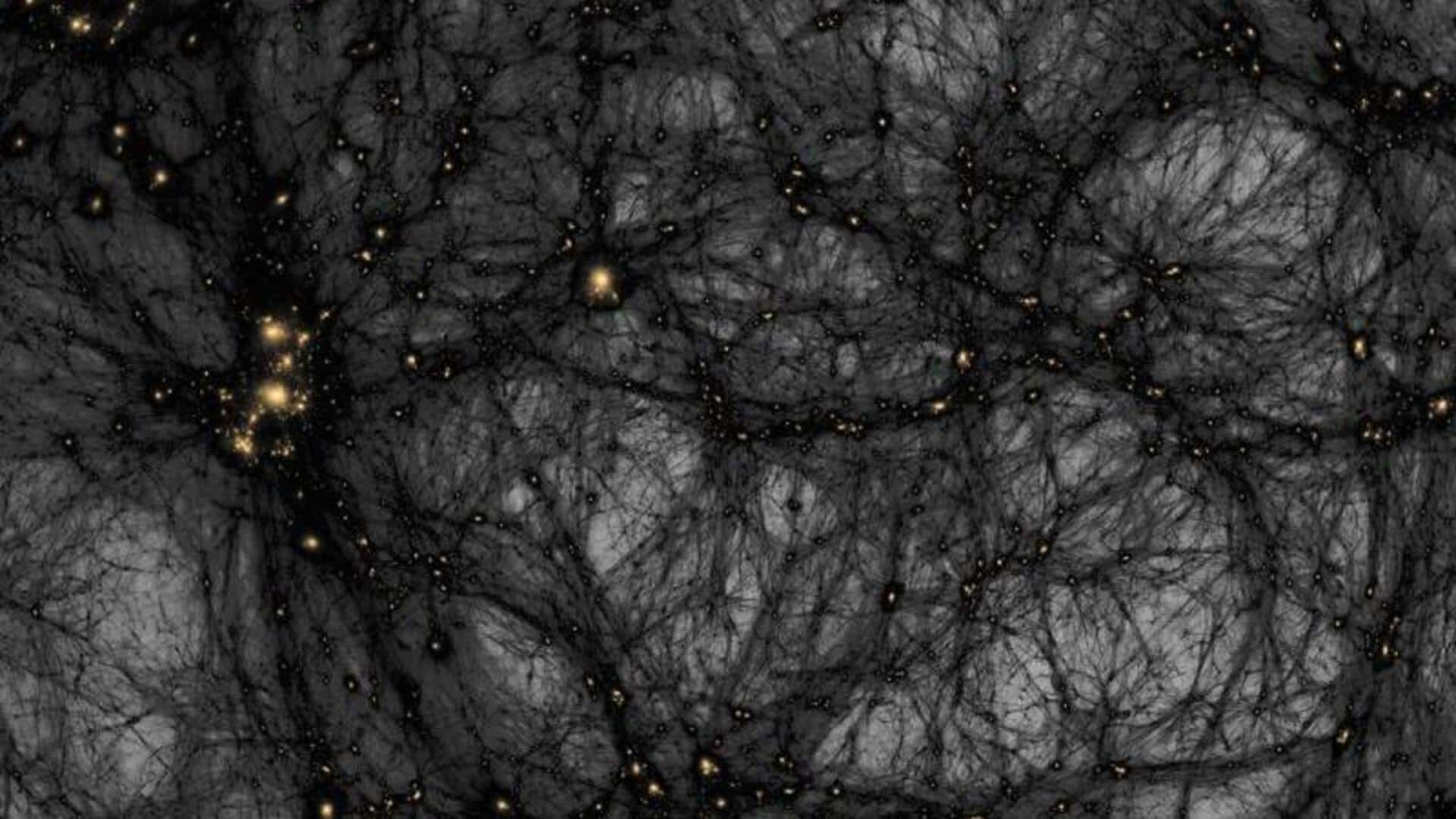
Is dark matter altering how we view the universe?
What's the story
A recent study published in Physics Letters B has proposed that dark matter could be influencing the light we see from distant galaxies. The research looks at weakly interacting massive particles (WIMPs) and their potential impact on cosmic light. This new angle offers a fresh perspective on the elusive nature of dark matter and its possible role in shaping our understanding of the universe.
Dark matter
Understanding dark matter and its significance
Dark matter, a mysterious substance that makes up a significant portion of the universe's mass, doesn't interact with light like regular matter. This has made it difficult to detect directly. The study suggests that WIMPs could be affecting the light from distant galaxies in ways we haven't fully understood yet.
Impact
Models developed to study dark matter's effect on light
The researchers created two theoretical models to study how dark matter might affect light from distant galaxies. One model assumed that dark matter only interacts through gravity, while the other assumed that collisions between dark matter particles create secondary particles. They found that in both cases, these interactions could slightly alter the energy and color of light coming from distant galaxies.
Findings
How dark matter might change light's appearance
The study also found that if dark matter only interacts through gravity, it would slightly increase the energy of light passing through it. This would make the light appear slightly bluer. On the other hand, if dark matter is weakly interacting, it would decrease the energy of light passing through it, making it look a bit redder.
Implications
Future studies could help confirm or disprove models
The researchers compared their models with observations from the Fermi Large Area Telescope (Fermi-LAT) of the Milky Way's galactic center. They found that either model could fit within the uncertainties of these observations. This suggests that further studies of high-energy gamma rays from our galaxy's center could help confirm or disprove these models, shedding more light on the mysterious nature of dark matter.